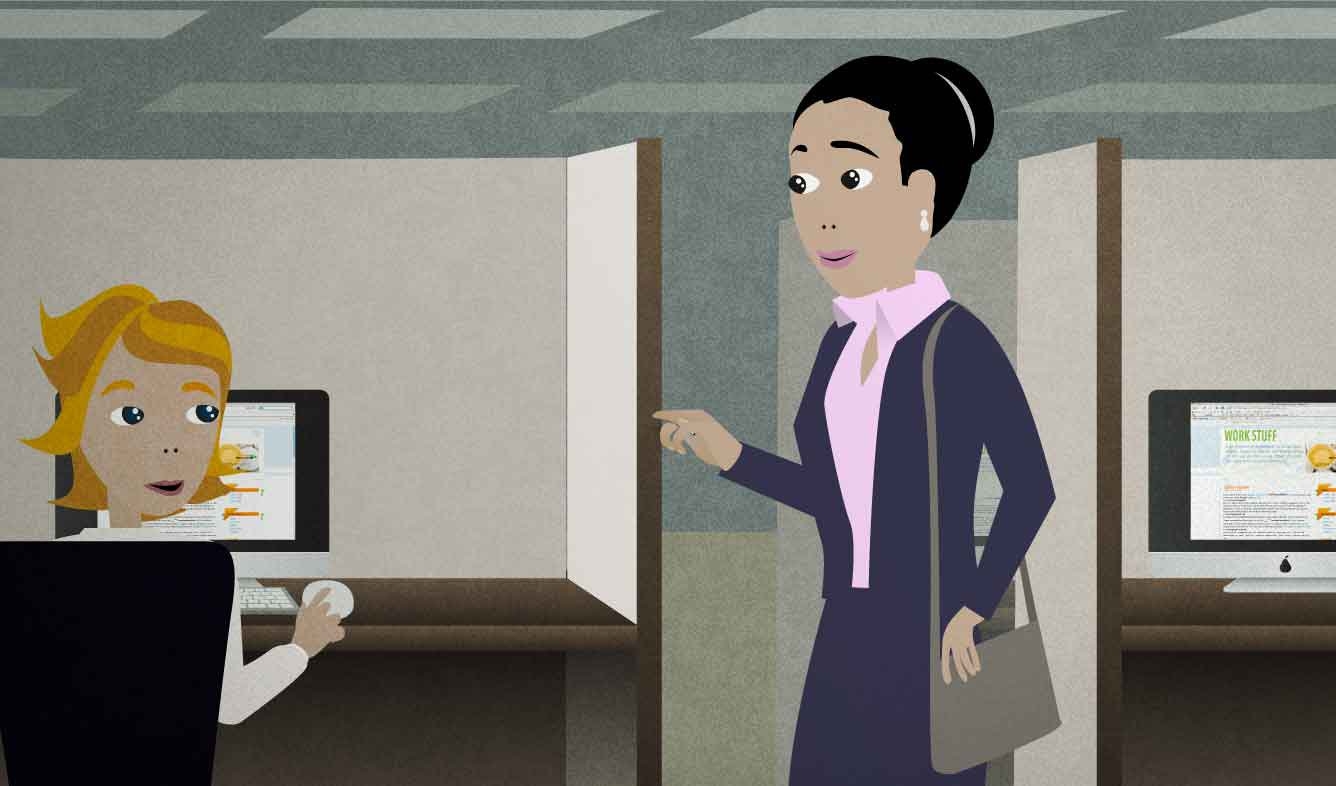“Don’t feel obligated to stay late. Once you’re done with whatever you're working on, you’re free to leave.”
There's a new employee working under you. It's late in the work day, but most people are still working. You explain to the new person that she doesn't have to stay late.
Don’t feel obligated to stay late. Once you’re done with whatever you're working on, you’re free to leave.
Want Video and Sound? Follow us on YouTube

stay late
In spoken English conversation, you say "stay late" to talk about staying at work until later than usual, or later than other people:
Did you have to stay late?
The phrase "work late" is similar, but just a bit more formal.
once (something happens), (something else happens)
This means that the second event happens very soon after the first event. The second event naturally follows from the first one. For example:
Once you get to know it, it's not that hard.
We can begin to consider the marketing strategy once we've nailed down the product design.
You don't use "once" when there's a long time between the two events, or if they're unrelated.
After we eat dinner, let's go for a walk.
feel obligated to (do something)
"Feeling obligated" to do something means that you feel like you have to do it. You're afraid that it would be rude not to do it.
People usually feel obligated to do things for social reasons, like because a friend or neighbor asked them to do it. For instance, if someone gives you a gift, you might "feel obligated" to give them a gift back in return. We usually talk about "feeling obligated" to do things that we don't want to do.
You can use this phrase in a sentence like this:
I feel obligated to help because, you know, he helped us out a couple of months ago.
I don't really want to go, but I feel kind of obligated.
You can also tell someone not to feel obligated to do something:
Don't feel obligated to come if you're too busy.
whatever (someone) (does)
Use the word "whatever" to talk about anything that fits into a category or matches a description:
You should just do whatever they ask of you.
Stop whatever you're doing and listen up!
I totally missed whatever you just said.
You're free to (do something).
If you have authority over someone, you can give them permission to do something with the phrase "You're free to ___." For example:
You're free to come and go as you please.
You're free to do whatever you want on your off time, but when you're at work, you play by my rules!
